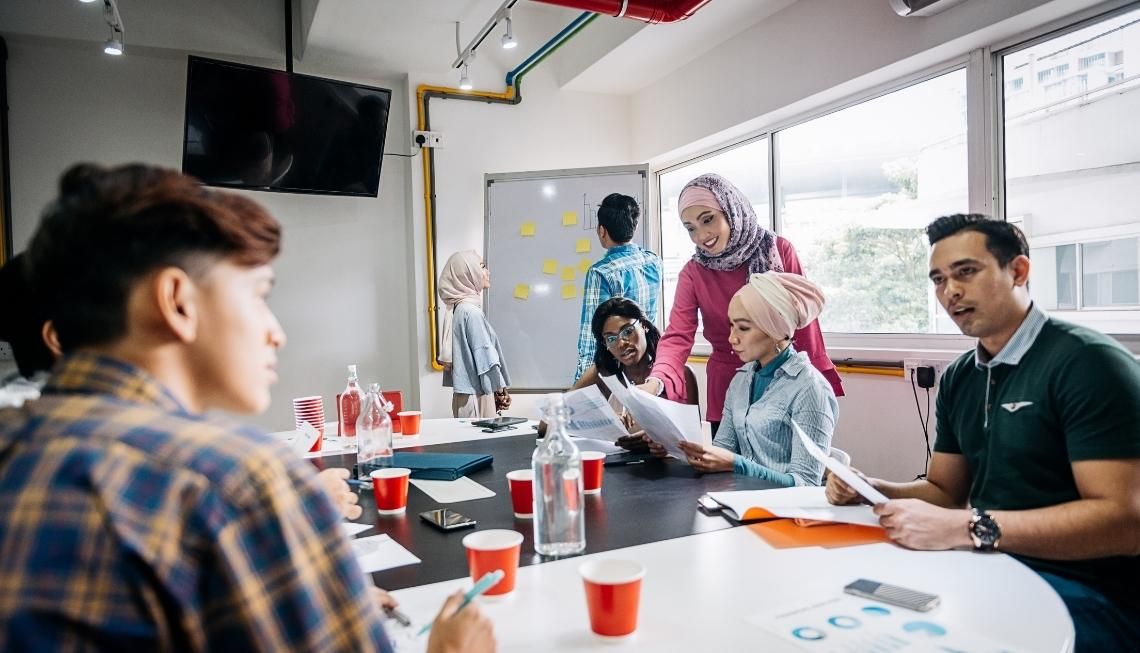Personalise learning and build community through tech and touch
By Singapore Institute of Technology
Associate Professor May Lim, Director, Centre for Learning Environment and Assessment Development, Singapore Institute of Technology, discusses the university’s online learning initiatives.

Studying in a community can address this, but it's not easy to create a sense of togetherness in a remote learning environment. SIT has introduced an innovative approach to help students find belonging amidst the pandemic.
A/Prof Lim addressed the Higher Education Planning in Asia Forum on new ways of teaching and how SIT is personalising online learning while building a learning community.
Personalising online learning
 A/Prof May Lim, Director, CoLEAD, SIT
A/Prof May Lim, Director, CoLEAD, SITEvery individual has their own approach to learning. A surface learner, for example, mainly cares about achieving a grade or impressing someone, not about educational growth.
Students at SIT have to complete the Freshmen Survey when joining the university to find out what kind of learner they are through a gamified platform named AdventureLEARN, A/Prof Lim shared.
The university can then provide personalised materials based on their learning profile to help them develop learning approaches suitable for higher education. For example, these could help a surface learner look past material achievements and learn for their personal growth.
Personalising the recommendation of educational content to a student’s profile and needs helps them to learn in a more effective way. Students have a limited attention span, so this window of time should be spent focusing on key areas, she explained.
One SIT student provided feedback that AdventureLEARN helped him better understand his individual development and eased him into university life.
Building community among students
A learning community can be built while personalising online learning. A good example is QUEST – a platform featuring adaptive online courses. The platform helps SIT students get up to speed in core competencies such as Math, Physics, and Chemistry in preparation for university courses.
QUEST helps students through hints and advice indicated in pop-ups while they are answering questions. Learning with real-time feedback is a new method of education, complementing traditional methods such as watching short video lectures, identified A/Prof Lim.
Students are also provided with an online collaborative space to learn from one another. Working together can help reduce procrastination, which is a common challenge in remote learning, A/Prof Lim highlighted. By getting students to discuss their personalised learning journeys and share advice with peers, students make their learning more self-directed.
This student community provides “a sense of belonging which is missing in this new norm”, she said. Students can use this collaboration opportunity to make friends and provide support for one another.
 At the virtual HEPA Forum 2021, A/Prof Lim shared why learning should be personalised. The QUEST platform aims to get students up to speed in core competency subjects.
At the virtual HEPA Forum 2021, A/Prof Lim shared why learning should be personalised. The QUEST platform aims to get students up to speed in core competency subjects.
Engaging through gamification
Technology offers a range of other benefits on top of collaborative work and personalised information. Through AdventureLEARN, students earn virtual coins by completing assignments. They may even collect ’Easter eggs’ – hidden items – by exploring different content on the site. The fun and surprises keep students coming back for more.
Students can take part in team challenges as well, in which four to five students work as a group. Together, they can watch videos, collaborate to create learning resources, or provide useful tips for wellbeing to earn more virtual coins.
“I like the fact that it includes resources for our wellbeing and not just focused on academics,” said one student.
 The gamified micro-learning platform AdventureLEARN allows students to unlock resources personalised to their learning profiles.
The gamified micro-learning platform AdventureLEARN allows students to unlock resources personalised to their learning profiles.
High tech is not enough
A/Prof Lim stressed that applying ‘high tech’ alone is insufficient to transform education in this current climate. ‘High touch’ is needed for students to feel connected and supported.
SIT believes in building a culture and an ecosystem where academic staff are equipped with skills to coach students effectively. While the e-learning platforms can help students personalise their learning and learn new concepts, the ‘high touch’ from academic staff is vital for supporting students who may be at-risk or struggling.
Analytics from e-learning platforms can help spot students who are struggling. By identifying coachable moments, SIT educators can reach out to such students to coach them on goals such as effective time management, improving group dynamics or better learning approaches.
With high tech and high touch, a learning community can be built to facilitate effective learning for the future.
Only time will tell if teaching will ever return to the way it was before Covid-19. But the advancements in personalised and collaborative education demonstrate that one university in Singapore is ready to make the most of e-learning while not forgetting the personal touch.
A/Prof May Lim will be speaking at the virtual Applied Learning Conference on 20 January 2022. Visit https://www.alc.sg/ for more information and registration details.